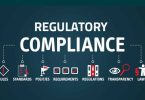Step-by-Step Guide to Opening a Business Bank Account
Embarking on the entrepreneurial journey requires careful planning and strategic decisions, and one of the foundational steps is opening a business bank account. The right business account can streamline financial transactions, enhance credibility, and provide a solid foundation for your business to thrive. In this comprehensive guide, we’ll walk you through the essential steps, considerations, and documents needed to successfully open a business bank account.

1. Gather Your Documents: The Foundation of Your Application
Before diving into the application process, gather the necessary documents to expedite the journey. Most banks require the following:
Personal Information:
Name, date of birth, and citizenship status.
Social Security Number (SSN).
Address and phone number.
Copy of government-issued ID (driver’s license or passport).
Business Information and Documents:
Business name and any DBA (“doing business as”) names.
Business licenses and registrations.
Business formation documents (e.g., articles of organization for LLCs).
Business operating agreements and ownership agreements.
Employer Identification Number (EIN):
An EIN, equivalent to a Social Security Number for businesses, is crucial for IRS interactions. Sole proprietors may not need it, but it’s recommended for privacy and professionalism.
Bank Minimum Deposit:
Some banks require a minimum deposit to open a business account. Be aware of this requirement and ensure funds are available.
2. Consider Your Needs and Wants: Tailoring Your Account to Fit
Understand your business’s unique needs and prioritize features accordingly. If you rarely accept credit card payments, skip the merchant services account. Consider your preferences regarding interest rates, fees, and specific account features. This insight will guide your selection process.
3. Comparison Shop for Banks: Finding Your Financial Partner
Create a list of potential banks and conduct a detailed comparison. Key factors to evaluate include:
Minimum balance requirements.
Integration with accounting programs.
Availability of business loans or credit cards.
Bank fees and policies.
4. Investigate Your Top Choice: Digging Deeper into Policies
Once you’ve narrowed down your options, delve into the details. Obtain a comprehensive list of fees and policies associated with the business account. Thoroughly review and take notes to anticipate potential charges or issues.
5. Apply for a Business Bank Account: Navigating the Application Process
Depending on the bank, you can apply online, in person, or over the phone. Provide the gathered documents and any additional details required by the bank. Submit the application and await approval.
6. Make an Opening Deposit: Initiating Financial Transactions
Upon approval, transfer your business funds to the new account. This marks the official commencement of your business’s financial journey with the chosen bank.
7. Close Your Old Business Bank Account: Streamlining Your Finances
If you previously operated with another business account, notify the bank and proceed to close that account. This ensures a seamless transition, preventing unwanted fees or potential issues.
Benefits of a Business Bank Account: Shielding and Empowering Your Business
A business bank account offers numerous advantages:
Legal Protection:
Separates personal and business finances, shielding personal assets from potential legal issues.
Enhanced Professionalism:
Accept customer payments without disclosing personal account details, fostering a more professional image.
Efficient Tax Management:
Streamlines tax-related processes, simplifying record-keeping and tax filings.
Facilitates Growth:
Establishing a financial presence enhances credibility, opening doors to potential business opportunities.
Types of Business Bank Accounts: Tailoring to Your Business Needs
Understanding the various account types ensures you choose the right fit:
Business Checking Account:
Essential for day-to-day transactions, receiving payments, and managing expenses.
Business Savings Account:
Provides a space for long-term fund storage and potential interest accrual.
Merchant Account:
Facilitates credit card payments from customers, essential for businesses with frequent card transactions.
Factors to Consider When Selecting a Business Bank Account: Crafting Your Financial Strategy
Carefully weigh these factors during your decision-making process:
Branch Access:
Evaluate the importance of local branch access, especially if handling cash transactions.
Fees and Minimum Balances:
Opt for banks with lower fees to maximize your financial resources.
Customer Service:
Determine your preference for hands-on or remote customer service based on your business needs.
Benefits and Rewards:
Explore additional perks offered by banks, especially those with business credit cards.
ATM Access:
Assess the availability of in-network ATMs, crucial for businesses requiring frequent cash access.
Best Business Bank Accounts: Navigating Your Options
Explore some top business bank accounts based on specific needs:
Chase Business Complete Checking:
Ideal for earning rewards, requires a $2,000 minimum balance to earn the new account bonus.
Axos Bank Basic Business Checking:
Perfect for online banking with no minimum balance requirements.
U.S. Bank Silver Business Checking:
Offers a brick-and-mortar banking experience with no minimum balance requirements.
LendingClub Tailored Checking:
An interest-bearing option with a competitive APY on balances up to $100,000.
FAQs: Clarifying Common Queries
Are Business Bank Accounts FDIC Protected?
Yes, business bank accounts are FDIC insured up to $250,000 per bank.
Do Business Accounts Have a Minimum Balance Requirement?
It varies; some banks impose minimum balance requirements, while others do not.
Does Opening a Business Bank Account Hurt Your Credit?
No, as banks typically do not perform credit checks for business account openings.
Do You Need a Business License To Open a Business Bank Account?
Generally, yes. Banks may require your business license to verify legitimacy.
Conclusion: Empowering Your Business Financially
Opening a business bank account marks a crucial step in fortifying your business’s financial infrastructure. As you navigate this process, consider it an investment in the efficiency, credibility, and growth of your venture. With careful consideration, strategic selection, and adherence to best practices, your business can embark on a financially sound and prosperous journey.
Emerging Trends Shaping the Future of Business and Technology
In the ever-evolving landscape of business and technology, staying abreast of the latest trends is crucial for organizations aiming to thrive in the digital age. From artificial intelligence (AI) to blockchain and the Internet of Things (IoT), cutting-edge technologies are reshaping industries and creating new opportunities. In this exploration of current technological trends, we’ll delve into their impact on various industries and the potential future developments that businesses should anticipate.
1. Artificial Intelligence (AI) and Machine Learning: Transforming Industries
Current Trends:
Automation Revolution: AI and machine learning are powering automation across industries, streamlining processes, and reducing operational costs.
Enhanced Customer Experience: AI-driven chatbots and virtual assistants are enhancing customer interactions, providing personalized experiences, and improving customer satisfaction.
Predictive Analytics: Businesses leverage machine learning algorithms for predictive analytics, enabling data-driven decision-making and proactive problem-solving.
Impact on Industries:
Healthcare: AI aids in diagnostics, drug discovery, and personalized medicine.
Finance: AI-driven algorithms enhance fraud detection, risk management, and financial planning.
Retail: Personalized recommendations, inventory management, and supply chain optimization are powered by AI.
Future Outlook:
AI Integration: Increased integration of AI into business processes for improved efficiency.
AI Ethics: Growing emphasis on ethical AI practices and responsible use of AI technologies.
2. Blockchain: Revolutionizing Transparency and Security
Current Trends:
Decentralized Finance (DeFi): Blockchain underpins the rise of DeFi platforms, transforming traditional financial services.
Supply Chain Traceability: Blockchain ensures transparency in supply chains, reducing fraud and ensuring the authenticity of products.
Smart Contracts: Self-executing smart contracts automate and enforce contract terms, enhancing efficiency.
Impact on Industries:
Finance: Blockchain facilitates secure and transparent transactions, reducing the need for intermediaries.
Healthcare: Ensures the integrity and security of patient data.
Real Estate: Streamlines property transactions and reduces fraud.
Future Outlook:
Interoperability: Focus on creating interoperable blockchain solutions for widespread adoption.
Sustainability: Blockchain used to trace and verify the sustainability of products.
3. Internet of Things (IoT): Connecting the Digital and Physical Worlds
Current Trends:
Smart Cities: IoT enables the creation of smart city infrastructure, optimizing resource utilization.
Industrial IoT (IIoT): Enhances manufacturing processes through real-time monitoring and predictive maintenance.
IoT in Healthcare: Wearable devices and connected healthcare systems improve patient monitoring and treatment.
Impact on Industries:
Manufacturing: Improves operational efficiency and reduces downtime.
Transportation: IoT enables smart logistics, predictive maintenance, and traffic management.
Energy: Enhances grid management, energy conservation, and sustainability.
Future Outlook:
5G Integration: Accelerates the adoption of IoT with faster and more reliable connectivity.
Edge Computing: Shift towards edge computing for real-time data processing.
4. Cybersecurity: Addressing Evolving Threats
Current Trends:
Zero Trust Security Models: Moving away from perimeter-based security to a zero-trust approach.
AI-Powered Security: Utilizing AI for threat detection and response.
Cloud Security: Ensuring robust security measures for cloud-based infrastructure.
Impact on Industries:
Finance: Heightened security measures for financial transactions and customer data.
Healthcare: Protection of sensitive patient data from cyber threats.
E-commerce: Secure online transactions and protection against data breaches.
Future Outlook:
Quantum-Safe Cryptography: Preparing for the future threat of quantum computing to current encryption methods.
Cybersecurity Training: Increasing focus on cybersecurity education and training.
5. Remote Work Technology: Redefining the Workplace
Current Trends:
Video Conferencing Dominance: Platforms like Zoom and Microsoft Teams become integral for remote collaboration.
Virtual Collaboration Tools: Embracing virtual whiteboards, project management tools, and collaborative platforms.
Cybersecurity Challenges: Adapting security measures to the increased threat landscape of remote work.
Impact on Industries:
Technology: Increased reliance on remote work technologies for software development and IT services.
Education: Shift towards online learning platforms and virtual classrooms.
Finance: Digital transformation in financial services to accommodate remote operations.
Future Outlook:
Hybrid Work Models: A blend of remote and in-person work to become the new normal.
Enhanced Cybersecurity Measures: Continued focus on securing remote work environments.
Tech-Driven Future
As businesses navigate the dynamic intersection of business and technology, embracing these trends becomes imperative for sustainable growth and competitiveness. The convergence of AI, blockchain, IoT, cybersecurity, and remote work technologies signifies a transformative era. By staying informed, adapting strategies, and fostering a culture of innovation, businesses can position themselves to harness the opportunities presented by these technological advancements. The future promises not only unprecedented challenges but also unparalleled possibilities for those ready to embrace the evolving landscape of business and technology.






